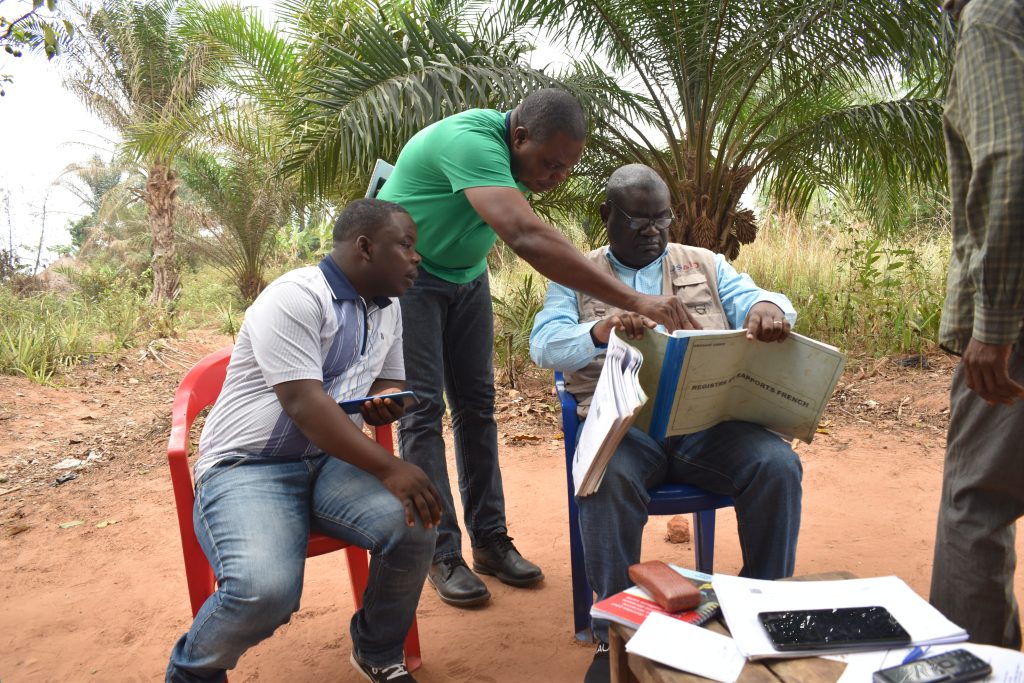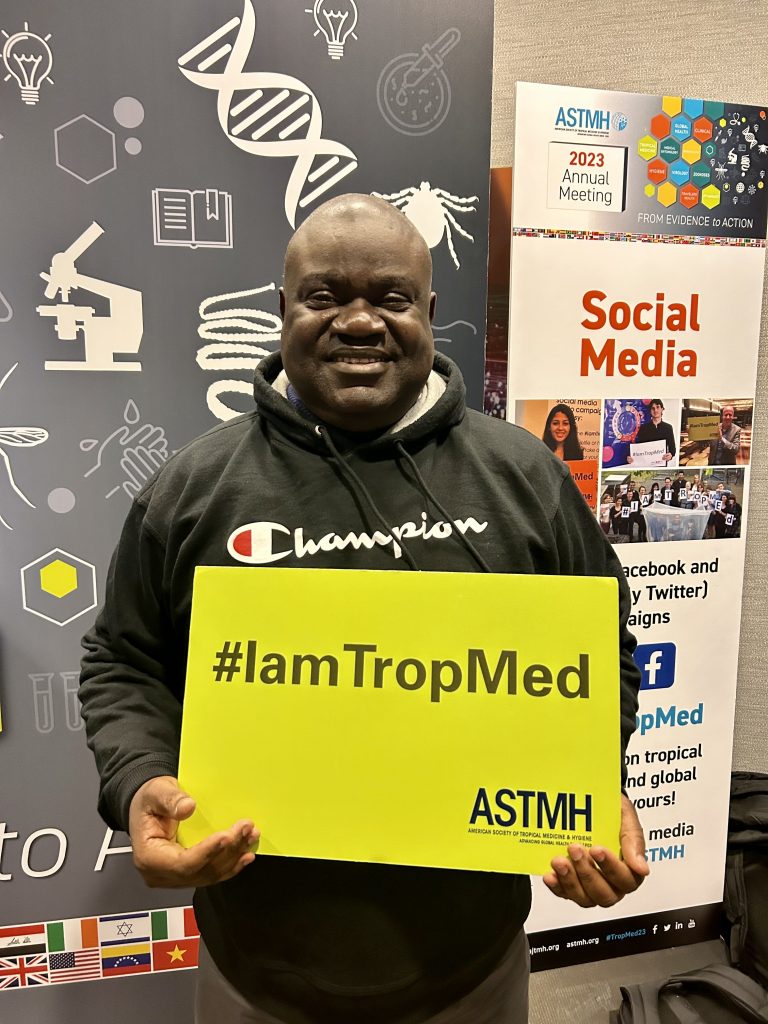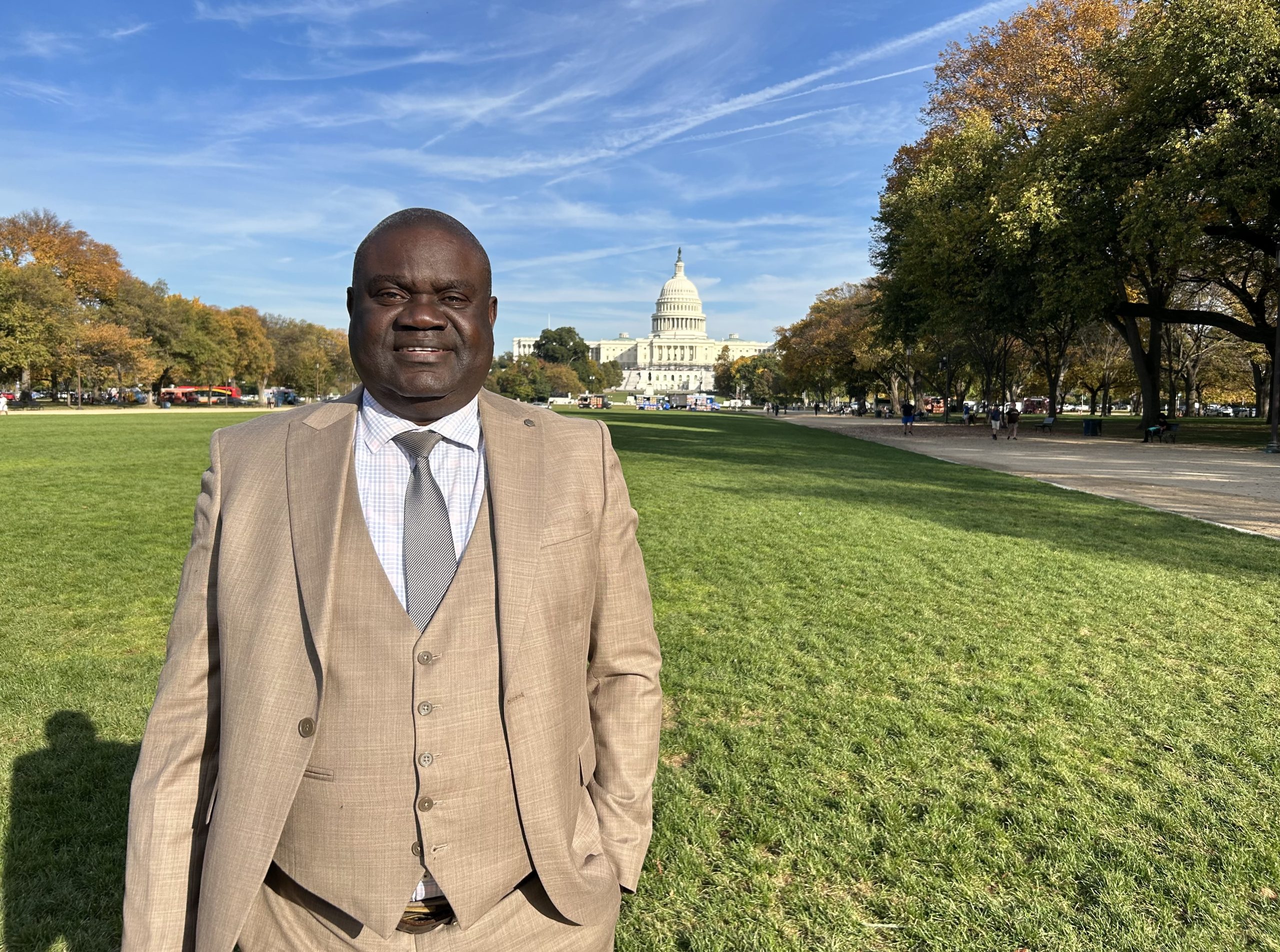Ferdinand cannot remember wanting to be anything other than a doctor like his uncle, who was smart, steadfast, and ready to serve anyone in need.
Fresh out of medical school, in a rural hospital in the Democratic Republic of the Congo (DRC), Ferdinand followed in his uncle’s footsteps, prepared to serve. Throughout the 1990s, he carried out the duties of an internist, a surgeon, a pediatrician, and a gynecologist; whatever services his patients needed, he provided. More than any other disease, he saw patients with malaria.
In DRC, “malaria is the main disease everywhere,” Ferdinand explained. The country’s entire population of 96 million is at risk. Most malaria deaths are among young children under the age of five. “Most of the children came to the hospital through the emergency department. They needed blood, and we had a blood bank, but most of the time they came late.”

Ferdinand visits a community care site – the home of a community health worker in Kasai Oriental Province, DRC. Here he reviews the register to see if the registration, diagnostics, and treatment are accurate.
Later Ferdinand moved into management of public health programs where he started the distribution of bednets in communities. “It was an amazing program that made me trust in bednets because its introduction reduced malaria morbidity among vulnerable populations – children under five and pregnant women.”
Visiting homes and health clinics in rural areas, Ferdinand felt energized by his conversations with community leaders, parents, and health workers. Like him, they were hopeful that this new tool could keep their children out of the hospital. “All the community members were excited about bednets.”
After returning to school for a Master of Public Health, Ferdinand was recruited by an international NGO in the position of National Malaria Manager. In that position, Ferdinand led the country’s first standalone mass distribution of bednets in Kinshasa in 2008.
In the two decades since Ferdinand’s first community bednet distribution, DRC’s National Malaria Control Program has grown and now deploys a comprehensive set of lifesaving interventions proven to fight malaria. PMI is a critical source of funding and technical support for insecticide-treated nets, malaria diagnosis and treatment, malaria chemoprevention, insecticide resistance monitoring, and social and behavior change. PMI investments also support stronger, more-resilient health systems. For example, PMI helps train health workers, strengthen supply chains, improve data monitoring, and reinforce health policies.

Through a fellowship for FSNs, Ferdinand spent six weeks in the United States this year to exchange experiences and ideas with his colleagues at USAID in Washington and CDC in Atlanta.
Since partnering with PMI, DRC has made significant progress against malaria. Child death rates have fallen 56%, and lifesaving interventions such as insecticide-treated mosquito nets and preventive treatment for pregnant women are reaching millions more people.
In the eight years since Ferdinand joined PMI as a Malaria Program Management Specialist, he has provided technical leadership and management of evidence-based t interventions aimed at to addressing the factors that influence whether health providers follow national guidelines and whether families adopt key behaviors like sleeping under insecticide-treated nets, seeking care earlier for fever, and getting preventive treatment for pregnant women.
Ferdinand notes, “Country leadership is very important to PMI, and FSNs [Foreign Service Nationals] are essential members of every PMI team, especially for retaining institutional memory. I’m proud of being part of the PMI family.”
Ferdinand’s uncle passed away when he was 12. While he did not get to see Ferdinand become a doctor whose work has served millions of his countrymen, he would no doubt have been honored to see his own values carried out in Ferdinand’s commitment to preventing illness and saving lives.
On November 15, USAID celebrates FSN Recognition Day. We thank Ferdinand and all of the FSNs working across PMI for their commitment to preventing illness from malaria and saving lives around the world. The deep experience and unique perspective they bring to their work every day is essential to PMI’s ability to partner effectively with countries to pursue our vision of ending malaria.

